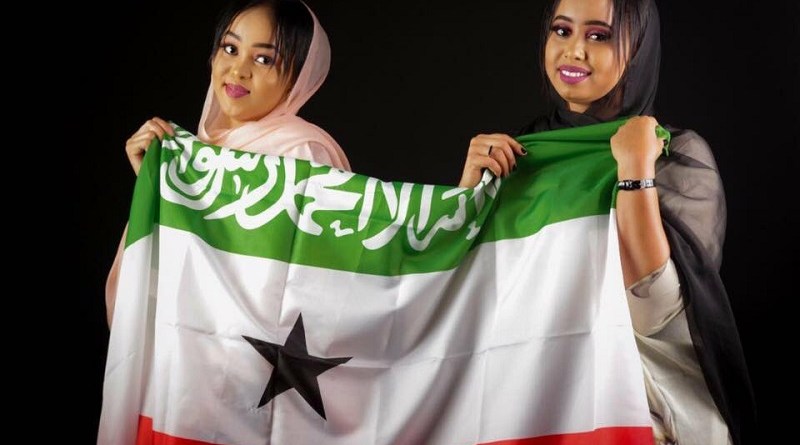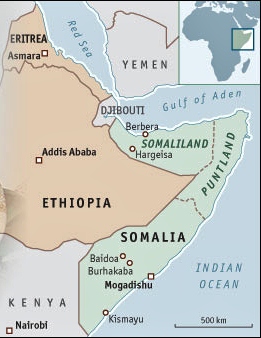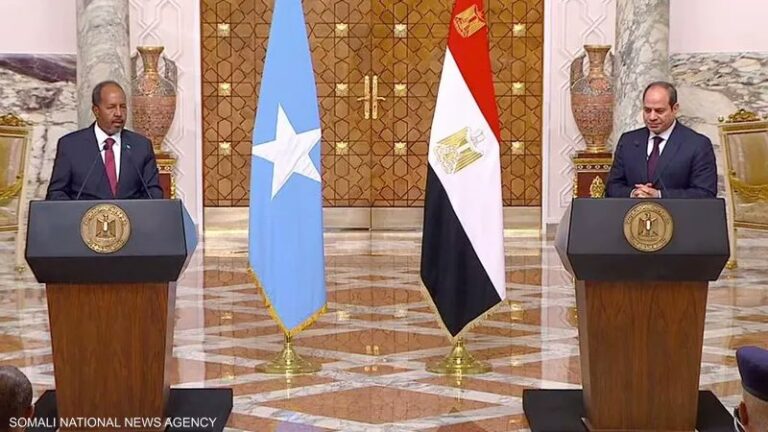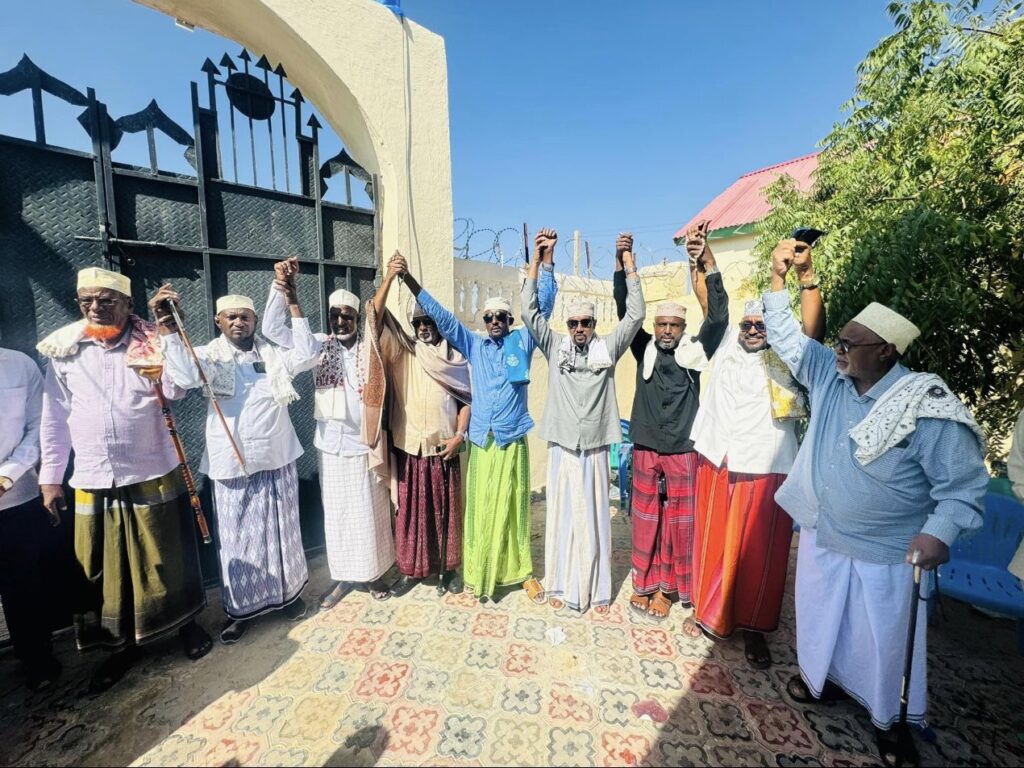The tension between Ethiopia and Egypt appears to have escalated as Cairo extends support to Somalia’s peace mission and an offer of security personnel to replace the African Union-backed force, whose mandate is nearing its end.
The prospect of Egyptian troops in close proximity has raised concerns in Ethiopia. Addis Ababa’s foreign ministry issued a statement declaring that the country cannot stand idle while other actors are taking measures to destabilise the region.
Since 2007, Somalia’s government has received support from the African Union peacekeeping mission (AMISOM) in its fight against al-Shabab, a group linked to al-Qaida and responsible for deadly attacks in Somalia and neighbouring countries such as Kenya and Uganda.
In August Egypt and Somalia signed a security agreement after Somali President Hassan Sheikh Mohamud visited Cairo and held talks with his counterpart Abdel-Fatah el-Sissi.
Tensions between Egypt and Ethiopia have been brewing in recent years, particularly over Ethiopia’s construction of a massive Dam upstream to generate electricity.

The Grand Ethiopian Renaissance Dam has been a longstanding source of friction among the three nations, with Cairo invoking a decades-old agreement to challenge Addis Ababa’s move.
Both Egypt and Sudan have expressed deep concern that the colossal $4.2 billion dam could significantly reduce the flow of Nile water into their territories.
They have consistently called on Addis Ababa to halt the dam’s filling until a mutual agreement could be reached, but Addis Ababa has pressed on regardless.
Another point of contention between Egypt and Ethiopia concerns Somalia’s breakaway region of Somaliland, which earlier this year entered into an agreement with Addis Ababa to provide access to the Red Sea.

More on this story: Let the African Union and UN Recognize Somaliland
Somalia has sought to block landlocked Ethiopia’s efforts to gain access to the sea via a controversial agreement with Somaliland to lease a stretch of its coastline for the establishment of an Ethiopian marine force base.
In return, Ethiopia has agreed to recognise Somaliland as an autonomous country and to give it a stake in Ethiopian Airlines.
Somaliland, which seceded from Somalia over 30 years ago, is not recognised as an independent state by the African Union or the United Nations. Somalia still considers Somaliland part of its territory.
The alliance between Egypt and Somalia has thrown Ethiopia into a state of alarm, revealing deep-rooted insecurities and power struggles in the Horn of Africa. This partnership has rattled the fragile regional balance, with Ethiopia’s leadership showing clear signs of panic.
Ethiopia is disturbed by the newfound relationship between Cairo and Mogadishu because of the strategic foresight and bold diplomacy of Somalia’s leadership, which has managed to reposition itself in a high-stakes game of regional politics.
Thus, Somalia’s recent alignment with Egypt marks a significant shift in the Horn of Africa’s geopolitical landscape. Rather than being a passive player, Somalia is asserting its agency, indicating that it is no longer content to be overshadowed by regional giants like Ethiopia. By entering into a military alliance with Egypt, Somalia has demonstrated a keen understanding of its geopolitical leverage, turning its strategic location into a valuable asset.
The deal between Egypt and Somalia, which includes the potential deployment of up to 10,000 Egyptian troops to Somalia by the end of the year, is a bold move that challenges the status quo. Ethiopia’s response–warning that it “cannot stand idle”–underscores the level of concern in Addis Ababa. For years, Ethiopia has positioned itself as the regional hegemon, exerting influence over its neighbors with relative ease. Somalia’s assertive diplomacy is challenging this long-standing dominance.
Addis Ababa mistrusts of Egypt, a historical adversary with whom it shares contentious and unresolved disputes over the Nile River. For decades, Ethiopia and Egypt have been locked in a bitter battle over the Grand Ethiopian Renaissance Dam (GERD), with Ethiopia aiming to harness the Nile’s waters for energy and development, while Egypt fears that the dam will threaten its water security. Against this backdrop, any Egyptian involvement in the region, particularly in a conflict-prone and strategically significant country like Somalia, is viewed with suspicion by Ethiopia.
Ethiopia perceives Egypt’s strategic interests in Somalia as potentially extending beyond the stated goal of regional stability. There is a fear in Addis Ababa that Cairo could use its influence in Somalia to encircle Ethiopia and exert pressure in the ongoing Nile dispute. From Ethiopia’s perspective, Egyptian military or political presence in Somalia could enable Cairo to build alliances that may counterbalance Ethiopian interests, tightening the noose around its regional ambitions.
Ethiopia’s panic is not just about the presence of Egyptian troops in Somalia; it’s about losing influence over a region it has long considered its strategic backyard. For a long time, Ethiopia has played a crucial role in Somalia’s internal security, deploying thousands of troops in and ouside the African Union banner to combat Al-Shabaab militants. But now, Somalia has turned the tables, demanding Ethiopia withdraw from its controversial port deal with Somaliland, the breakaway region of Somalia.
Somalia’s push to remove Ethiopian forces from its territory is a masterstroke, reflecting a newfound confidence and determination to assert its sovereignty. Ethiopia’s protests, framed as concerns over regional stability, mask a deeper fear: that it is losing its grip on a neighbor it once influenced with relative ease.
On the domestic front, Ethiopia is also wary that Egypt’s involvement in Somalia might embolden opposition groups or insurgents within Ethiopia. Egypt has previously been accused, of providing covert support to groups opposed to the Ethiopian government. While these allegations are often dismissed by Cairo as baseless, the perception alone is enough to cause unease in Addis Ababa.

Egypt’s involvement could encourage other countries to re-evaluate their positions, potentially drawing more players into the already complex political landscape of Somalia. Countries like Kenya, which has its own vested interests in Somalia, might find themselves caught between supporting Ethiopia or aligning with Somalia or Egypt, leading to a more fragmented regional crisis.
Somalia’s insistence that Ethiopia recognize its sovereignty over Somaliland has caught Ethiopia off guard.By aligning with Egypt, Somalia is sending a clear message that it will not be coerced into accepting Ethiopia’s unilateral decisions. This bold stance is a testament to Somalia’s commitment to its national interests, regardless of Ethiopia’s attempts to pressure or undermine it.
For Egypt, the alliance with Somalia is an opportunity to counterbalance Ethiopia’s growing influence in the region, particularly amid the ongoing dispute over the Grand Ethiopian Renaissance Dam (GERD). The GERD has been a source of tension between Egypt and Ethiopia for years, with Egypt viewing the dam as a potential threat to its water security. By forming a partnership with Somalia, Egypt gains a strategic foothold in the Horn of Africa, potentially giving it leverage over Ethiopia in the Nile dispute.
However, Somalia, stands to benefit from Egyptian military support and economic cooperation. This partnership could help Somalia strengthen its security apparatus, rebuild its institutions, and bolster its position in regional politics. Far from being a passive recipient of foreign influence, Somalia is actively shaping its destiny by forging alliances that serve its national interests.
Somalia’s moves have put Ethiopia on the defensive, challenging its assumed role as the regional power broker. While Ethiopia laments about destabilization, it is clear that the real issue, destabilizion, is its reluctance to accept a new balance of power in the Horn of Africa. Somalia, once seen as a failed state, is now emerging as a confident player, ready to engage on its terms,refuse any infringement and defend its sovereignty.By aligning with Egypt, Somalia is demonstrating that it is a force to be reckoned with, a nation capable of forming strategic alliances to advance its interests. This new direction in Somali foreign policy should be seen as a potential boost for regional stability, not a threat.Somalia’s assertive diplomacy deserves credit for shaking up the regional order and asserting its right to be treated as an equal.

More on this story: Tensions between Ethiopia and Sudan and prospects for this standoff





